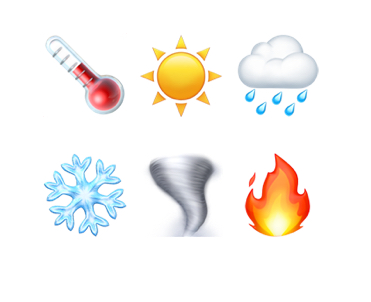From February 26 through March 4, Colonia High recognized National Eating Disorder Awareness Week by providing statistical information and help tips on the morning announcements.
There are many different eating disorders such as anorexia nervosa, bulimia nervosa and purging disorder. Some symptoms of eating disorders are dehydration, dizziness, fainting, low blood pressure. Some signs are skipping meals, going to the bathroom after meals and overeating to the point of sickness. An eating disorder is something that many people still don’t fully understand. Eating disorders take over a person’s mind and portrays a “perfect” image.
In American culture being slim is idealized, so the number of eating disorders are rising. This week is National Eating Disorder Awareness Week (NEDA.) This years’ theme is “Let’s Get Real,” this meaning it’s the year to finally break any myths of eating disorders.
People often have a preconception about what a person with an eating disorder looks like. However, it is much harder to tell when a person is suffering. That’s where the big problem starts- how do you know? Another problem is that people chose to ignore what they aren’t familiar with.
Eating disorders are a big problem in today’s society. According to Center for Discovery, there are roughly 30 million people who suffer from an eating disorder in the United States. It is not only woman who suffer from eating disorders men also suffer. This being a start in finding a solution in helping those who suffer. It’s time to realize that eating disorders do not discriminate.
Some signs of an eating disorder are dramatic weight loss, dresses in layers to hide weight loss or stay warm, makes frequent comments about feeling “fat.’ Evidence of binge eating, including disappearance of large amounts of food in short periods of time or lots of empty wrappers and containers indicating consumption of large amounts of food. They often use mouthwash and gum.
Eating disorders often times lead to health issues such as Edema (water retention), Low blood sugar, Kidney and liver damage, and Anemia. Eating disorders can also lead to depression.
There are so many unanswered questions surrounding eating disorders that needed to get some answered. Katherine Perez, a mother of a student at Colonia High School, reported, “I know that eating disorders can happen to anyone, male or female and it could happen at any age.”
According to ANAD, “Every 62 minutes at least one person dies as a direct result from an eating disorder” and consequently, “eating disorders have the highest mortality rate of any mental illness.”
Perez added, ” T.V. shows, magazines and things of this nature have portrayed the image that you have to be a single digit dress size in order to be considered beautiful and popular.” Ms.Perez also stated, “There are so many things going on in the world along with our children and teens being so caught up with social media to take note of the severity of this issue and how close to home it can actually be.”
Perez also commented on the fact that women are more likely to develop eating disorders, and stated “I agree I myself in the transition from 8th grade to high school began starving myself to reach my ideal weight. At that time I didn’t realize that it was in fact a form of an eating disorder.
If you are interested in raising awareness and funds, there will be a NEDA Walk in Montclair, New Jersey at Montclair University on April 22. Check in is at 9:30 AM and should end around 11:30 AM.
If you or someone you know are suffering from an eating disorder here are some hotlines you can call,
NEDA at (800) 931-2237,
Newport Academy at 866-392-0544 or e-mail at [email protected]
Crisis Call Center
800-273-8255 or text ANSWER to 839863
Twenty-four hours a day, seven days a week










